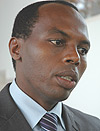The highly acclaimed New Partnership for African Development, a programme formed in 2000 by a fresh commitment of some African leaders as an alternative development agenda ‘for Africans by Africans’ is still unclear in its implementation.


The highly acclaimed New Partnership for African Development, a programme formed in 2000 by a fresh commitment of some African leaders as an alternative development agenda ‘for Africans by Africans’ is still unclear in its implementation.
In a recent correspondence with the NEPAD Secretariat in Johannesburg South Africa, an official communication stated that currently the NEPAD is set to hire a consultancy agency to study the integration process of its structures into the African Union mechanisms.
Officials said the overall objective of integrating it into the AU is a major step in moving towards the better management of Africa’s development age.
Having been formed in 2001 by a coalition of highly respected African leaders, including Rwanda’s Paul Kagame, Nigeria’s Olusegun Obasanjo, Senegal’s Abdulaye Wade, and South Africa’s Thabo Mbeki, NEPAD envisioned African leaders policing each others’ performance in terms of service delivery to their subjects. This was to be implemented through a framework known as the African Peer Review Mechanism.
Up to 2008, only Rwanda, Ghana and now Uganda have allowed the APRM to test the performance of their respective governments.
NEPAD also found itself at crossroads with the then rejuvenating Organisation of African Unity which under the guidance of Libya’s Muammar Ghaddafi had re-branded and was being promoted simply as the African Union.
The new AU and NEPAD were almost inspired by the same ideas and inevitably both found themselves duplicating each other’s services.
As a result, in May 2008 a summit attended by Senegal’s Abdulaye Wade and Thabo Mbeki formally announced the integration of NEPAD into the AU, but it (NEPAD) would retain its South African-based Headquarters.
Francis Gatare, President Kagame’s Special Envoy to the NEPAD, at the time said that the integration was not a failure but rather made the AU more effective.
He added that because of NEPAD, several regional economic and political integration blocks have come up all over the continent and improved the political climate there.
The NEPAD Secretariat and the African Union Commission (AUC) have since that announcement been working closely on the integration process of NEPAD and AU.
Observers state that the NEPAD is another form of donor-funded capacity building project in Africa which is largely limited to being a subject of discourse for study and a consultancy on the continent, with minimal or no impact to the human resource they are alleged to be developing.
Dr. Maxwell Mkweazalamba, the AU Economic Affairs chairman, recently finalised a document that will guide study and consultancy firms to research the integration process of both institutions.
Ends


